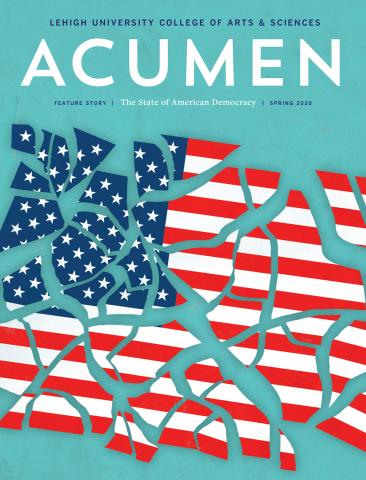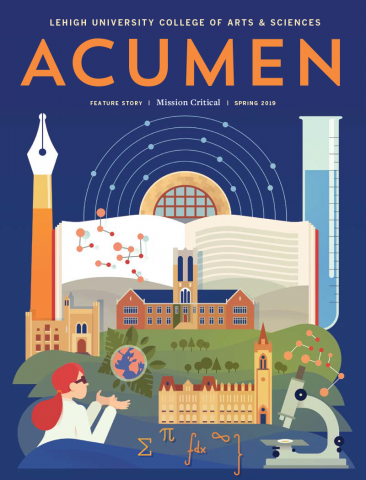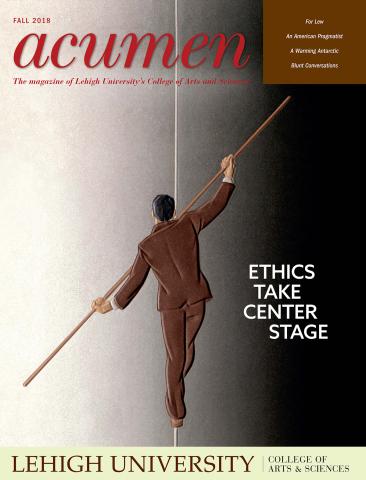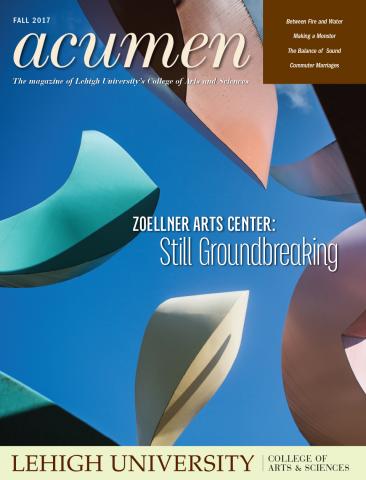
The priest throws a wooden cross, and dozens of boys dive after it into the bayou’s murky water. As each one jumps from the pier, he searches for the cross, hoping to be the first to sur-face. According to local tradition, the boy who finds the cross will bring blessings and unity to his family.
One determined figure dons a short black wig and joins the dive. For her, family unity is a goal worth fighting for.
This scene is at the heart of “Epiphany,” a new independent film written and directed by Koula Sossiadis Kazista ’95 with her sister Katina Sossiadis and produced by Meritage Pictures. The film premiered last April, picking up awards in nearly every category on the festival circuit. It explores themes of family, gender, and place through the lens of a Greek-American enclave on Florida’s Gulf Coast.
“At its core, this film is a familial relationship story,” said Kazista, explaining that the setting came out of the sisters’ childhood trips to Tarpon Springs with their father.
“It’s a love letter to our Greek heritage,” she said.
The film follows Luka, a teenage girl living in Tarpon Springs. The daughter of a drifter raised by her uncle, Luka dreams of a stable family and vows to join the boys-only dive to win the peace that the wooden cross represents. Diving is already a source of sustenance for Luka’s family: her uncle and father are part of the last remnants of a once-thriving sea sponge trade, harvesting the natural sponges that brought generations of Greek divers to Florida starting in the early 20th century.
The story also explores the tension between tradition and modern life in Tarpon Springs, which is still home to a large and devout Greek community.
“We chose that place because those people still preserve the Greek culture very well,” said Ka-zista. “But when you have that, you also have a little bit of old world.”
The idea of a girl joining the Epiphany dive, for example, is still unheard of in the town. “Our girl wants to know why she can’t have all the things that the boys have,” she said.
The film was a collaboration between Kazista and Sossiadis, sisters who dreamed of making a feature together after they produced a short film called “Lynn’s Wake” in 1999. “When it comes to film, for some reason, we are definitely on the same page,” said Kazista.
Both women made their careers in the industry, working mostly in production. Kazista’s credits include work on films including “Anger Management” and “School of Rock,” and she now owns a film equipment rental company.

A journalism major at Lehigh, Kazista grew interested in film during her time there, starting with a screenwriting class. “I had been writing the film since I was at Lehigh,” she said. “My script was about Tarpon Springs.”
For her thesis project at Lehigh, Kazista wrote about the director Peter Weir, who is famous for films like “Dead Poet’s Society” and “The Truman Show.” She was particularly interested in the emotions Weir was able to evoke through his work.
“I kind of had an epiphany myself after doing it,” said Kazista. “I was kind of obsessed with mak-ing the audience feel.”
This interest in feeling comes through in her film, which puts the relationships and emotional connections between the characters into clear focus.
Part of this came out of Kazista’s training in journalism: she chose to center the characters’ drama within the story of the sponge industry, which few Americans know about. “You always want to show the audience something they’ve never seen before,” she said.
This orientation also drew her to Anastasios “Taso” Karistinos, a local fixture in Tarpon Springs and a veteran of the sponge trade. Kazista interviewed Karistinos several times and used him as a consultant for their sponge diving scenes. The crew also modeled the boat in “Epiphany” on Karistinos’ sponge diving boat, including the small pots and pans he used to cook with on diving trips, and pictures of his family in the cabin. (we actually used his boat)
For Karistinos, Kazista said, the film was a chance to show the life he lived, as the industry and the culture around (are vanishing — he still makes a living at this. “He told me he wanted to make the film as a legacy for his grandchildren to look at and remember him,” she said.
The Tarpon Springs community’s reaction to the film was mixed. The central scenes were filmed at St. Nicholas Greek Orthodox Cathedral and at Spring Bayou, which hosts the largest Epiphany ceremony in the United States. At first, the priest welcomed their project, one of many to focus on its nexus of immigrant culture. But the central question in the film of whether girls could dive in the Epiphany ceremony gave the community pause.
Epiphany premiered at the nearby Sarasota Film Festival and won several awards from the In-ternational Christian Film Festival.
Kazista and Sossiadis are already at work on their next film. Called “Searching for Artemis,” the film is a generational drama about three Greek-American women.
“The two of us have never been closer,” said Kazista, noting that they balance each other’s strengths. “I’m logistical, she is creative.” They are planning to base the film in Bethlehem, their hometown, with Bethlehem Steel as its backdrop.
In the meantime, Kazista is watching “Epiphany” reach new audiences, who interpret it in their own ways.
“It’s a very layered film,” she said. “So, we are very interested in hearing what people say.”































